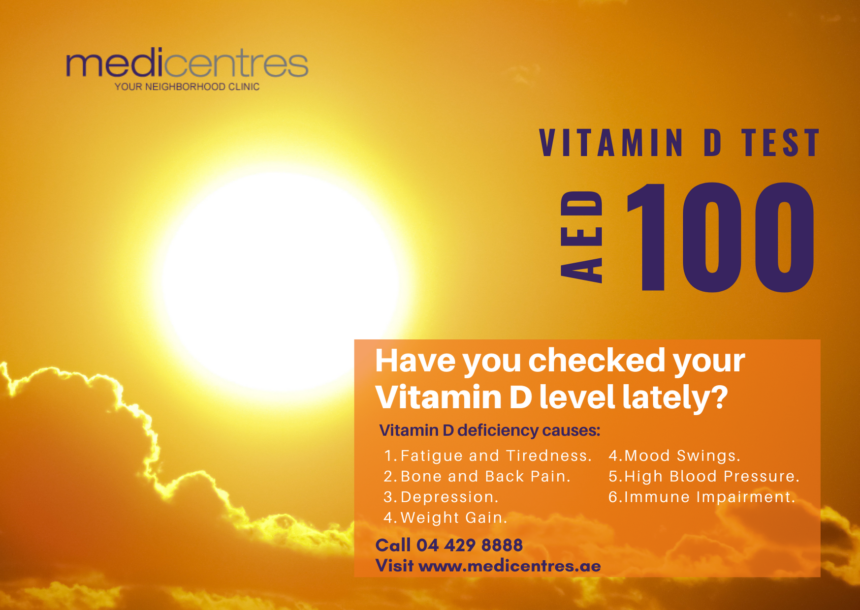Vitamin D is essential for development and growth of healthy bones, muscles and teeth, it boosts immune function. Body needs vitamin D for calcium absorption.
Where do we get Vitamin D?
Through a combination of diet and supplements mainly.
Few dietary sources of vitamin D are oily fish (such as salmon and sardines), cod liver oil, egg yolks and fortified foods, including milk, orange juice etc Diet can help but reaching optimum levels with food alone is very hard.
Although the main source is made in the skin with the help of sunlight (esp UVB rays), these rays can also burn the skin and increase cell damage leading to skin cancer.
What causes vitamin D deficiency:
- Mainly by limited exposure to sunlight. Living in the UAE, we are at risk especially during summer, as people avoid going outdoors due to extreme heat. More than 70% of the UAE population has vitamin D deficiency.
- Being elderly, people who are housebound or have limited mobility are at higher risk
- Sedentary lifestyle
- Dark skin, as pigmentation can reduce vitamin D production in the skin by 90%
- Certain medicines
- Certain health conditions that can affect vitamin D metabolism, such as gastrointestinal disorders, liver and kidney disease
How is vitamin D deficiency diagnosed?
Through a blood test.
Insufficiency is diagnosed if level is between 10-30ng/ml and deficiency is level below 10ng/ml
What happens if you don’t have enough vitamin D?
- Vitamin D deficiency is very common. Some of the symptoms are:
- Low back ache, tiredness and muscle aches or muscle cramps.
- Hair loss
- Severe deficiency can cause soft, weak and deformed bones, leading to rickets in children (causing pain in legs and bowing) and osteomalacia in adults.
- With long term deficiency bones can also become weak, fragile (osteoporosis) and fracture prone.
Remember: Preventive and therapeutic doses of vitamin D are not the same. Depending on your level, talk to your doctor to know what the correct dose is for you. In general, children require 400IU/day and adults require 1000IU/day.
Bottom line: Food and recommended doses of vitamin D supplements will provide you with all the vitamin D you need.


Leave a Reply